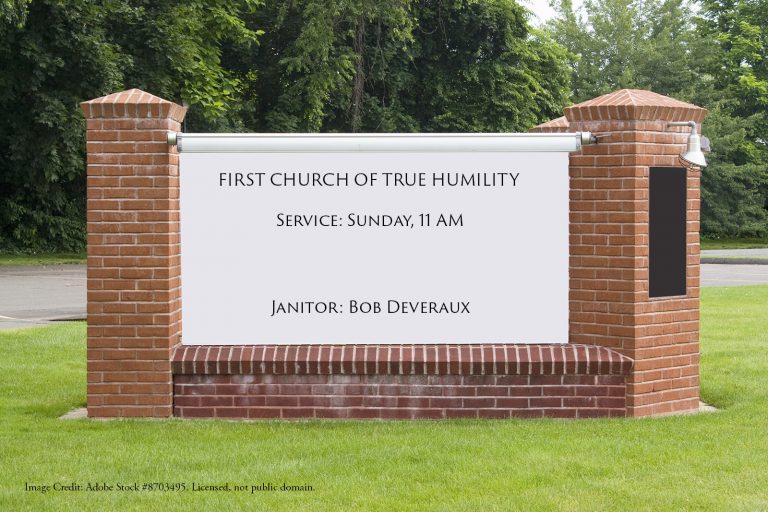Overspiritualized Decision Making
The question came to me after I had been talking about intercessory prayer and hearing God’s voice, but it came as a surprise.
“What should I do about sharing knowledge I get from God about other people? Can I tell other people so that we can pray more specifically?”
I had not been talking about getting information about people from words of knowledge or whatever other means one might think of doing so. Considering the number of people I have heard claim to get special knowledge from God, and the number of cases in which I have found this information to be incorrect, my first concern was that someone would consider an unverified thing they heard to be safe to share with anyone.
But the questioner had a different concern. Somehow, this person thought that if the information came from God, sharing it would not be gossip. The “spiritually acquired” information was somehow special, and would absolve one of gossip.
As an aside, I would say that whether you believe you got your information straight from God, picked it up by being a good reader of people, heard it from a gossip in your church, or put it together from clues that lead you to a conclusion, sharing it with someone else inappropriately is gossip.
I begin with this story to illustrate a basic problem. People give themselves a special category for spiritual things. They say things and do things in a “spiritual” context that they might never do in real life.
Whether you hurt someone through physical action or through some sort of spiritual activity, they are still hurt. In fact, by giving extra spiritual weight, such as by saying “God told me” or “this came to me during my prayer time” can increase the emotional damage that you can do.
I’d go so far as to say that I have heard this phrase many more times as spiritual manipulation than as genuine spiritual counsel and help.
Think about it! If you tell something that you think the church should undertake a particular project, they can easily object and discuss the merits of the case. If you say, “God told me we should do it,” they have to not only challenge your ideas, but call you a false prophet, speaking the word of the LORD when the LORD has not spoken. When you say you came to your conclusion in your prayer time, you can combine both elements, by giving yourself an extra spiritual aura and at the same time suggesting that your suggestion should be seen as coming from God.
Outside of the realm of decision making, and with people who will hear it as I intend it, I may say that I have heard this or that from God. I will note here, however, that what I hear from God invariably is about me, not anyone else. Actions I take based on that hearing may impact you, but I rarely hear something for someone else. The exception is often with prayer partners where we help one another confirm a course of action.
So how can one be sure that one knows the will of God? Surely I can suggest a way in which you can be certain and thus can act on what you hear from the Lord without further consideration.
No, I don’t. I do not have a checklist that will make certain. I find the tests in Deuteronomy very interesting. In Deuteronomy 18 we are told that if a prophet’s word is not fulfilled, their word is false. I call this the “dead test” for a prophet, because by the time you know whether the prophet spoke truly, you’re dead. Try the story in 1 Kings 22 as an example.
But in Deuteronomy 13, we’re told that even if a prophet’s word comes true, if they tell us to worship other gods, we are to reject them as false. This is a live test, but it kind of leaves us with a serious question. How do you know what God is saying? How do you know God’s will?
Now let me detour to those who think they will get all answers from scripture, for example. Some of the craziest decisions I have ever heard of came from people who thought they were following scripture. They also didn’t know God’s will.
So is there a problem there with scripture?
Well, you can call it a problem, but it’s really a problem with everything. I am a human. I’m finite. I’m imperfect, subject to error. Whether I’m interpreting scripture, following tradition, doing my best scientific calculation, or listening to the voice of God (as I perceive it), I’m still imperfect.
Consider a laser measuring device. Suppose it is capable of measuring the distance to a point to 1/16″, such as this one I found on Amazon.com. Now supposing we have a readout that will only read measurements accurate to an inch. We cannot actually get the correct measurement of which the device is capable because we can’t actually read that result.
Similarly, while God is entirely accurate, I am not. I cannot make a 100% claim of correctness no matter what. Any 100% correctness would have to be accomplished by God, and then in turn, the message is likely to be misunderstood by the next person down the chain.
So does that leave us unable to make any decisions? Not at all! We live with ambiguity all the time. We make mistakes all the time. Just because you make a mistake in church doesn’t make it incredibly devastating.
Unless, that is, you try to make the claim that you are, in fact, a prophet who is without error. You can make your claims more destructive by the claim of perfection for yourself. A good approach is whether it’s just your opinion or whether it’s what you believe you heard from God, present it as yourself. That’s not arrogant. That allows for God speaking to the other person. A number of times I have said something which someone else says was precisely what they needed to hear, generally when I didn’t even have the slightest notion that I was giving someone God’s word. The hearer identified it as something they needed without my saying so.
Decision making involves lots of sources and finally your own reasoning.
Yes, Proverbs says to “lean not on your own insight” (Proverbs 3:5). But even your understanding of what God has said goes through your own mind. You’re eventually going to have to decide, and your mind will be involved in doing it. Hopefully, it seems good to the Holy Spirit and to you (cf. Acts 15:28), and so it is not purely your own understanding, but you are going to have to make the decision, no matter what input goes in.
Personally, I take everything in, test it as best I can, hold what is good, and make my decision (1 Thessalonians 5:20-22).
(Theme Image Credit: Image by Gerd Altmann from Pixabay)


“For now we see through a mirror, darkly.” Kind of makes you wonder how absolutely we should take even Paul’s thoughts.